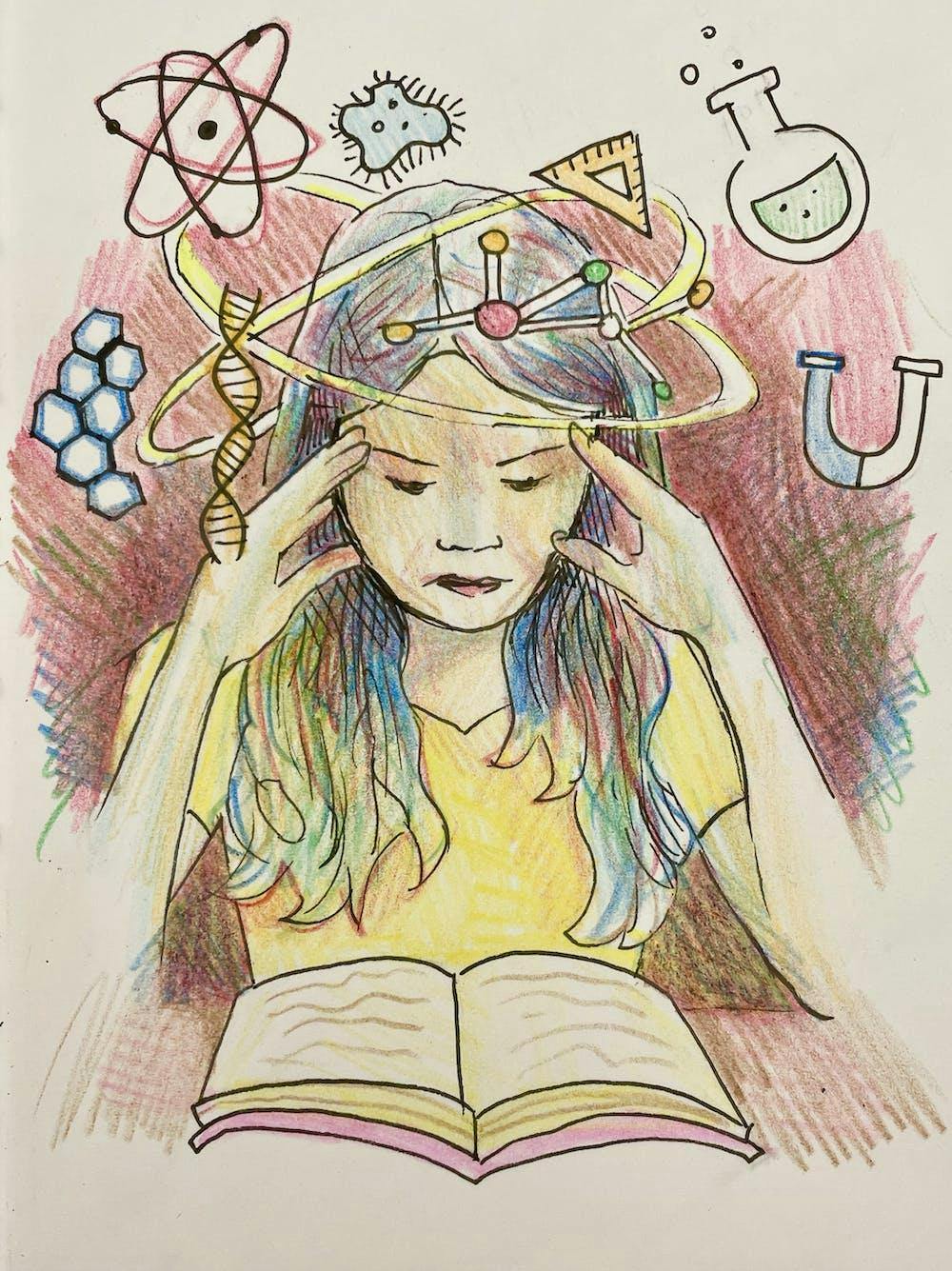The Herald’s fall 2023 poll, which collected over 1,000 responses from undergraduate students, found that approximately one-third of current students are concentrating in the physical sciences, more than any other field of study. Degrees in the physical sciences — which mainly include concentrations in engineering, mathematics, physics, chemistry and computer science — is becoming increasingly popular both at Brown and nationwide.
The proportion of physical sciences degrees has experienced a significant increase from 2014, at which point they composed just 18.6% of conferred undergraduate degrees.
For many physical science concentrators, the decision to pursue a physical science degree is largely based on interest. Sofia Mrowka ’25, who concentrates in applied mathematics-biology, noted that pursuing a joint concentration in the physical and life sciences allows her to explore “how math can be applied to different areas of study” and expand on her interests in biology.
Although Christopher Bianco ’25 applied as a political science and applied math double concentrator, he switched to mechanical engineering before ever stepping foot on campus. For Bianco, engineering “changes the way you see the world.”
In light of the COVID-19 pandemic and the rapid expansion of technology, Mrowka believes that “science has become a more essential part of our lives.”
According to Tom Doeppner, co-director of undergraduate studies and the vice chair of the Department of Computer Science, the physical sciences are becoming more accessible as students are introduced to them increasingly earlier in high school.
Doeppner also noted that more students may want to study the physical sciences due to “the huge number of jobs available in tech fields.”
As the costs of pursuing higher education continue to rise, students are more conscious of career opportunities when selecting their concentrations, according to Bernard Li ’26, who intends to double concentrate in applied mathematics and mathematics-computer science and pursue a career in technology. “Everyone wants to get more bang for their buck,” Li said.
Li applied as an anthropology concentrator with the intention of attending medical school, but he was dissuaded by the monetary and personal costs associated with post-graduate education.
Bianco attributes the large growth in the number of physical science concentrators in part to the strength of the physical science departments at Brown, which he believes attracts college applicants interested in those academic areas.
Although Brown has traditionally been considered a liberal arts school, Doeppner said that “the numbers aren’t saying that so much anymore,” referring to the rising popularity of physical sciences concentrations.
“A liberal education is great, but it’s possible that it might be tougher to get a job if you don’t have some technical education,” Doeppner said.
A similar trend is found nationally: Data from the National Center for Education Statistics shows that the percentage of bachelor’s degrees awarded in the physical sciences has increased from approximately 10.7% in 2012 to 14.8% in 2021.
Mrowka attributes this national discrepancy to Brown’s open curriculum and lack of graduation requirements. With “so many opportunities to take classes outside of your concentration, you can get a college-level understanding of physical principles but can also engage with humanities programs simultaneously,” Mrowka said.
Bianco hopes that the increased national popularity of the physical sciences will help diversify historically male-dominated industries. In 2021, the United States Census Bureau found that women made up 27% of the workforce in science, technology, engineering and mathematics-related fields.
“Recently, there’s been more of a push to get women and other underrepresented groups to get involved” in engineering and computer science, Bianco said. “Making these fields more accessible means that people who are really good at and interested in these areas have finally been encouraged to pursue them.”
Julianna Chang is the managing editor of production and development of The Herald's 135th Editorial Board. She previously served as a university news editor overseeing the academics & advising and student government beats. A junior from the Bay Area, Julianna is studying Biology and Political Science on the pre-medical track. When she's not in class or in the office, she can be found eating some type of noodle soup and devouring bad books.





